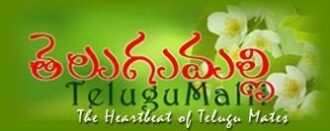Today we celebrate an auspicious occasion: Buddha Purnima or the birth of Buddha. The Buddha was a man who redefined Hinduism and created a new religion by simplifying the complexity of its parent faith. One of his most significant teachings is the teaching of oneness with all beings. He states that “Those who experience the unity of life see their own selves in all beings, and all beings in their own selves, and look on everything with an impartial eye.” From this we can glean some lessons which are applicable to our daily lives. Our world has been wrought by definition and its divisible nature creating opposition. This opposition is at once necessary and overbearing in its use. A restaurant may have two types of dinner guests that it caters for. One group will include meat eaters which comprise the majority and one group will include vegetarians which form the minority. The restaurant for revenue purposes may cater largely to the majority with a menu aimed at protein based foods. The restaurant owner may see this as necessary to stay afloat as future revenue is not expected to change to another customer group. The vegetarians however may find this overbearing as they may have limited meals that they can order and can’t enjoy a full course meal at the restaurant. In this same way, definition is both friend and foe although we should notice that the ones who define are usually the winners is also used for justification of actions and events.
If we begin to understand that definition is also interchangeable then it can be seen that the elements of our lives are connected without us even knowing. We can take the analogy of a cell in the body to explain this concept. The cell is an entity on its own however it is also intrinsically connected to the other cells in the same organ or system. Several organs and bodily systems are connected together to form the whole. In our own lives, each of us acts like a cell and we interact with our neighbouring cells such as friends, family and work colleagues to form a society, a business, a social class or any number of respective groups. Together all these groups can make a culture, a religion or country or state. The definition of what a person (cell) is or does is interchangeable with their role on a larger scale as part of a group (organ) and even more so as a part of the state (body). We may also notice that how we interact with each other creates a highly functioning organ or group that has one goal. When aligned with other groups, the respective goals complement each other and (barring ego) we may observe that we contribute to a bigger goal of sorts without even trying.
The explanation for Buddha’s quote is that just as we may all see our own individual endeavours as the most important and most beneficial to ourselves, we are silently contributing to those of others and on a grand, even universal scale. The idea he is putting forth is not that we should abandon our differences and what makes us unique. We should embrace ourselves and understand the way we express ourselves is by definition. What we should also do is broaden our perspective and begin to appreciate the differences to our lives that those around us make. In them, we may find a person aiming unconsciously for a common goal with the rest of us and accept our role in their lives as well.
